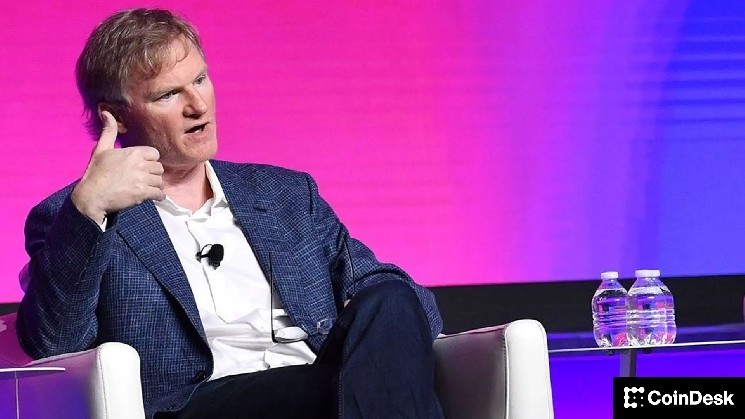BitGo Secures German Regulatory Approval to Expand into Regulated Crypto Trading
German Financial Authority Grants BitGo License Extension, Enhancing Institutional Crypto Services Across Europe
In a significant development for the European cryptocurrency landscape, digital asset custody provider BitGo has successfully obtained regulatory approval from Germany’s Federal Financial Supervisory Authority (BaFin) to expand its operations into regulated cryptocurrency trading. The approval represents a pivotal advancement in BitGo’s strategic growth within the European market and signals increasing regulatory clarity for institutional crypto services in the region.
According to a press release issued Wednesday, the newly secured license extension enables Frankfurt-based BitGo Europe to broaden its service offerings substantially. The company can now provide both over-the-counter (OTC) trading services and operate an electronic trading platform supporting thousands of digital assets and stablecoins. This regulatory milestone builds upon BitGo’s existing Markets in Crypto-Assets (MiCA) license obtained in May 2023, which previously limited the company to providing custody, staking, and transfer services.
Integrated Trading and Custody Solution Addresses Key Institutional Needs
The expanded license creates a comprehensive solution for institutional investors by addressing two critical requirements simultaneously: access to liquid markets and regulatory compliance. Institutional clients can now source liquidity from various market makers and exchanges through BitGo’s platform while maintaining their assets within the company’s MiCA-compliant cold storage system.
“Institutions need deep liquidity and reliable execution, but they also need the assurance of regulatory oversight,” explained Brett Reeves, BitGo’s head of European sales. “We’re aiming to provide both in one place.”
This integration of services represents a significant development for institutional adoption of cryptocurrency in Europe. Traditional financial institutions like pension funds and asset managers considering cryptocurrency investments have historically faced substantial barriers to entry, including the complexity of opening multiple accounts across different exchanges and custodians. BitGo’s newly enhanced platform aims to streamline this process by allowing trading and settlement to occur within a single regulated ecosystem while keeping assets secure in cold storage—a crucial consideration for institutional risk management.
Strategic Collaboration Enhances Trading Network Capabilities
Earlier this year, BitGo established a strategic partnership with custody specialist Copper to develop an expanded “in-custody” trading network. This collaboration aims to onboard major cryptocurrency exchanges, enabling assets to be traded while remaining within a regulated custody ring-fenced environment. The approach addresses one of the most significant concerns for institutional investors: the security risks associated with transferring assets between trading venues and custody solutions.
The development positions BitGo more competitively against established players in the European cryptocurrency services market. Crypto exchanges Coinbase and Kraken already offer similar combinations of trading platforms and custody services in the region, highlighting the growing institutional demand for integrated digital asset solutions under clear regulatory frameworks.
BitGo’s expansion of services comes at a pivotal moment in European cryptocurrency regulation. The implementation of the Markets in Crypto-Assets (MiCA) framework has created one of the world’s most comprehensive regulatory environments for digital assets, providing much-needed clarity for institutional participants. By securing approval under this framework, BitGo strengthens its position as a compliant service provider capable of meeting the stringent requirements of traditional financial institutions exploring digital asset investments.
Reducing Friction for Traditional Financial Institutions Entering the Crypto Market
The potential impact of BitGo’s expanded services could be particularly significant for European institutional investors considering their first forays into digital asset markets. For entities like pension funds and asset managers—which operate under strict regulatory requirements and fiduciary responsibilities—the combination of regulated trading and custody services removes a substantial barrier to entry.
Rather than navigating the operational complexity of establishing relationships with multiple service providers, these institutions can now access market liquidity, execution services, and secure custody through a single, BaFin-regulated entity. This streamlined approach not only reduces operational overhead but also provides clarity regarding regulatory compliance—a critical consideration for risk-averse institutional investors.
The development reflects broader trends in the institutional cryptocurrency market, where service providers are increasingly focusing on creating comprehensive solutions that address the specific needs and regulatory requirements of traditional financial institutions. As regulatory frameworks continue to mature across Europe and globally, the distinction between cryptocurrency services and traditional financial infrastructure continues to narrow, potentially accelerating institutional adoption of digital assets.
BitGo’s successful regulatory expansion in Germany underscores the growing sophistication of the cryptocurrency services ecosystem and highlights how regulatory clarity can enable innovation while maintaining necessary protections for market participants. As one of the most stringent financial regulators globally, BaFin’s approval provides significant validation for BitGo’s operational standards and compliance procedures.
For the broader European cryptocurrency market, this development signals continuing progress toward a mature, regulated ecosystem capable of supporting significant institutional participation. As more traditional financial institutions seek exposure to digital assets, the availability of regulated, integrated service providers like BitGo may prove instrumental in facilitating the next phase of market growth and adoption.
The approval also demonstrates how the cryptocurrency industry continues to adapt to evolving regulatory expectations, with leading service providers increasingly embracing comprehensive regulatory frameworks rather than seeking to avoid oversight. This evolution suggests a maturing market that increasingly recognizes the value of clear regulations in fostering institutional trust and participation.
As BitGo begins to implement its expanded service offerings, the development will be closely watched by competitors, regulators, and institutional investors as a potential model for regulated cryptocurrency services in other jurisdictions. The company’s ability to successfully combine trading and custody services while maintaining regulatory compliance could establish new standards for institutional cryptocurrency infrastructure across Europe and beyond.














